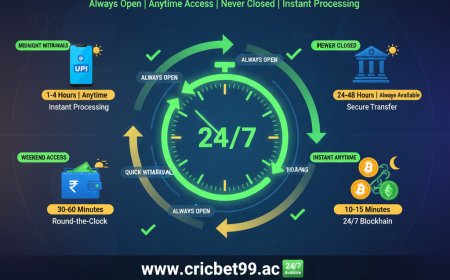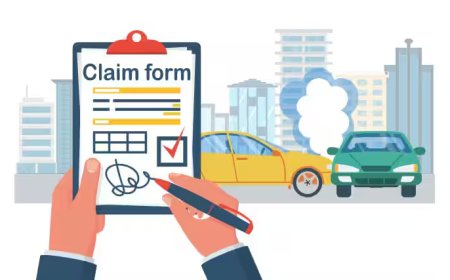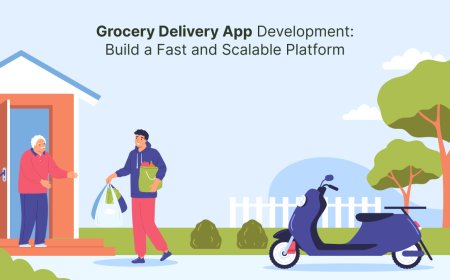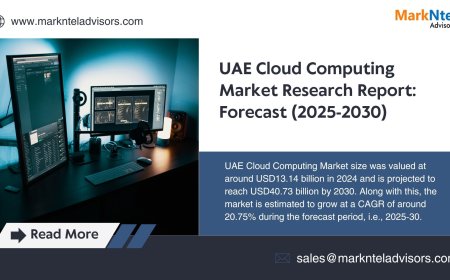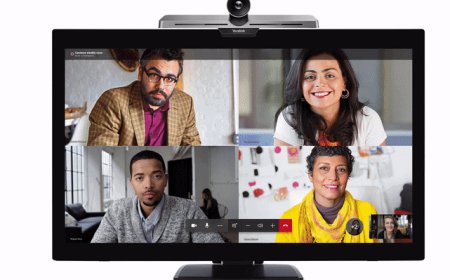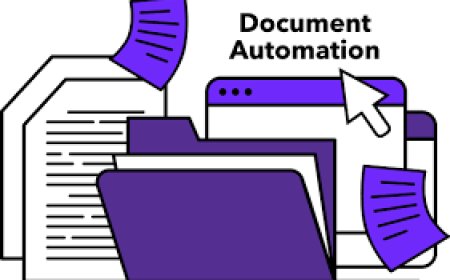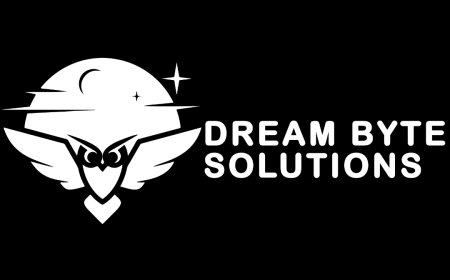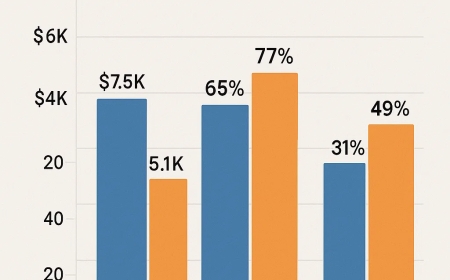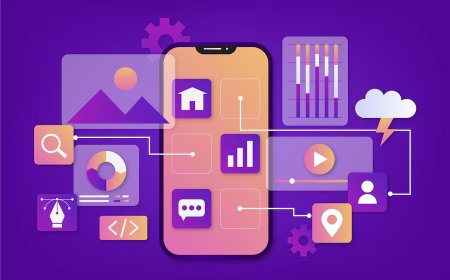How to Promote Online Event
How to Promote Online Event: A Comprehensive Tutorial Introduction In today’s digital age, online events have become an essential platform for businesses, educators, and creators to connect with their audience globally. Whether it's a webinar, virtual conference, workshop, or product launch, knowing how to promote an online event effectively is crucial for maximizing attendance and engagement. Suc
How to Promote Online Event: A Comprehensive Tutorial
Introduction
In todays digital age, online events have become an essential platform for businesses, educators, and creators to connect with their audience globally. Whether it's a webinar, virtual conference, workshop, or product launch, knowing how to promote an online event effectively is crucial for maximizing attendance and engagement. Successful promotion not only drives registrations but also builds brand awareness and creates lasting community connections.
This tutorial will guide you through proven strategies and actionable steps to promote your online event. By following this comprehensive guide, you will learn how to create buzz, attract the right audience, and ensure your events success from start to finish.
Step-by-Step Guide
1. Define Your Event Goals and Target Audience
Before any promotional activity, clarify what you want to achieve. Are you aiming for lead generation, brand exposure, sales, or education? Defining clear goals helps tailor your messaging and promotional channels.
Next, identify your target audience. Understand their demographics, interests, pain points, and where they spend time online. This knowledge will inform your content and marketing strategy.
2. Craft a Compelling Event Message
Create a clear, engaging value proposition for your event. Highlight what attendees will gain, such as learning outcomes, exclusive insights, or networking opportunities. Use persuasive language that resonates with your target audience.
Develop a strong event title, tagline, and description that succinctly communicate your events benefits.
3. Build a Dedicated Event Landing Page
An optimized landing page is the cornerstone of your promotion. Include essential information such as date, time, agenda, speakers, and registration form. Use clear call-to-actions (CTAs) encouraging visitors to sign up.
Ensure your page is mobile-friendly, fast-loading, and SEO-optimized with relevant keywords like online event, webinar, or your events specific topic.
4. Leverage Email Marketing
Email remains one of the most effective channels for event promotion. Segment your email list to target the right audience with personalized invitations and reminders.
Send a series of emails including the initial invite, follow-ups, last chance reminders, and post-event thank you notes. Incorporate compelling subject lines and engaging visual elements to boost open and click-through rates.
5. Utilize Social Media Platforms
Promote your event across relevant social networks such as LinkedIn, Facebook, Twitter, and Instagram. Create event pages or groups where attendees can engage and share.
Use a mix of content types: teaser videos, countdowns, speaker highlights, and live Q&A sessions. Employ targeted ads to expand your reach beyond organic followers.
6. Collaborate with Influencers and Partners
Partner with industry influencers, speakers, or organizations who share your target audience. They can amplify your message through their channels, providing social proof and credibility.
Offer incentives for partners to promote your event, such as free access, affiliate commissions, or co-hosting opportunities.
7. Create Engaging Content Around the Event
Develop blog posts, infographics, podcasts, or videos related to your event topic. This content builds interest and drives traffic to your registration page.
Consider hosting pre-event live streams or teaser webinars to warm up your audience.
8. Use Paid Advertising Strategically
Invest in paid ads on platforms like Google Ads, Facebook Ads, or LinkedIn Ads to target precise audience segments. Use compelling visuals and messages aligned with your event goals.
Monitor and optimize your campaigns continuously to maximize ROI.
9. Engage Registrants Before the Event
Keep your registrants excited with regular updates, sneak peeks, and interactive content. Use email and social media to encourage participation and sharing.
Provide clear instructions on how to join the event and what to expect.
10. Follow Up After the Event
Send thank-you emails with event highlights, recordings, or additional resources. Gather feedback through surveys to improve future events.
Encourage attendees to share their experiences on social media and stay connected for upcoming events.
Best Practices
Plan Early and Maintain Consistency
Start promoting your event several weeks in advance. Consistent messaging across all channels helps build awareness and anticipation.
Focus on Audience Value
Always emphasize the benefits and takeaways for attendees rather than just the features of the event.
Optimize for Mobile Users
Ensure all promotional materials and the registration process work seamlessly on mobile devices.
Leverage Scarcity and Urgency
Use limited-time offers, countdown timers, and exclusive bonuses to encourage early registrations.
Monitor Analytics and Adjust
Track metrics such as registration rates, click-throughs, and social engagement. Use this data to refine your strategies in real-time.
Engage Your Community
Foster interaction before, during, and after the event to build a loyal audience.
Tools and Resources
Event Management Platforms
Zoom Popular for webinars and virtual meetings with registration features.
Hopin Comprehensive virtual event platform supporting networking and expo areas.
Eventbrite Easy-to-use event registration and ticketing platform.
Email Marketing Tools
Mailchimp User-friendly email campaigns with automation and segmentation.
ActiveCampaign Advanced automation and CRM integration for personalized outreach.
Social Media Scheduling
Buffer Schedule and manage posts across multiple platforms.
Hootsuite Monitor social channels and analyze performance.
Advertising Platforms
Facebook Ads Manager Powerful targeting options for event promotion.
Google Ads Reach intent-driven users through search and display ads.
Content Creation Tools
Canva Design engaging visuals and social media graphics.
Adobe Premiere Rush Edit promotional videos quickly and easily.
Real Examples
HubSpots Virtual Marketing Summit
HubSpot used a multi-channel approach combining email marketing, social media teasers, and influencer partnerships to promote their annual virtual marketing summit. A dedicated landing page with clear CTAs and an early bird registration discount helped drive significant attendance.
TEDx Online Conferences
TEDx events leverage their global brand by sharing speaker highlights and thought-provoking teaser videos on social media. They encourage community sharing and use email sequences to nurture registrants.
Google I/O Developer Conference
Google I/O employs extensive video content, live streaming, and interactive sessions to engage developers worldwide. Their promotion includes countdowns, sneak peeks, and active social media engagement.
FAQs
How far in advance should I start promoting my online event?
Begin promotion at least 4-6 weeks before the event, allowing ample time to build awareness and registrations.
What is the best way to increase event registrations?
Combine targeted email campaigns with social media advertising and compelling content that highlights the events value.
How can I keep attendees engaged during the event?
Incorporate interactive elements such as polls, Q&A sessions, and breakout rooms to maintain attention and participation.
Should I charge for my online event?
It depends on your goals and audience. Free events attract more attendees but paid events can increase perceived value and commitment.
How do I measure the success of my event promotion?
Track registration numbers, attendance rates, engagement metrics, and post-event feedback to evaluate effectiveness.
Conclusion
Promoting an online event effectively requires a strategic, multi-channel approach that prioritizes clear communication, audience targeting, and consistent engagement. By following the step-by-step guide and best practices outlined above, you can maximize your events reach and impact.
Utilizing the right tools and learning from successful examples will empower you to create memorable online events that achieve your goals and foster lasting connections with your audience.








&srotate=0)


